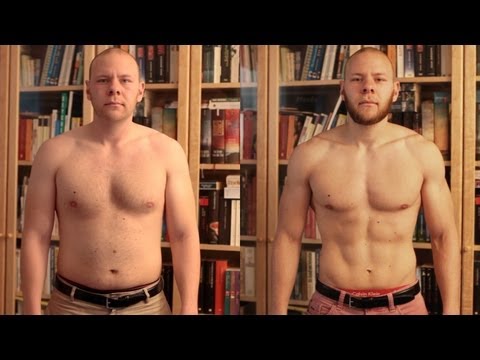In order to ensure he’d be around to see his grandchildren, Reynolds turned to the Bible—“the greatest health book in the world”—and found the word, body, printed 179 times. He quickly nixed the ice cream habit, started exercising, and accidentally developed Bod4God, a faith-based weight loss program responsible for over 17,000 pounds lost within the Capital Baptist community alone, including over 100 of his own.
The four-key program, now in churches across the country, is just one of many new weight loss and wellness programs rooted in religious or spiritual tradition. Like many, Bod4God includes the conventional pillars of weight loss—diet, exercise, and the importance of a support network. But what Bod4God is consistent with is an idea that Andrew Newberg, MD, author of How God Changes Your Brain, and countless other researchers have realized: to ensure success with any program that involves the physical and the subjective, whether it be weight loss, stress reduction, or compliance with a medical treatment, the person has to really believe it.
“When a patient is doing something that feels good to them and is consistent to their own life philosophy, they’re going to have the most benefits,” says Dr. Newberg. If you’re a mover and a shaker, sitting meditation isn’t going to do it for you. But if you, like the followers of Bod4God, need the Bible to keep you accountable for the cookie jar, more power to you.
The difference between regular weight loss programs and faith-based ones, according to Jimmy Peña, founder of Bible-based fitness program PrayFit, is the why. You might try to slim down to prevent the onset of diabetes or to fit into last year’s white jeans. But for the followers of PrayFit, the motivation is Biblical. Literally. “The Bible is full of stories of men and women who have conquered obstacles in their life through faith,” says Peña. “We can apply so many of those stories to our health.” And he does every day in his PrayFit Daily column. The former fitness director at Muscle and Fitness and celebrity personal trainer relates an excerpt of scripture to his followers’ journey to a fitter, healthier self. Beyond PrayFit daily, the plan includes few specifics—there’s a 33-day body toning DVD, a book, 10-minute workouts, and sound nutrition tips. It’s less of a plan, and more of a philosophy—not unlike the Bod4God system. There are no pedometers or weigh-ins. “We don’t motivate through vanity—we don’t need to,” he says. “We have enough motivation with faith.”
The inspiring success stories of programs like Bod4God and PrayFit show trimmer, completely transformed bodies—but their muscles aren’t the only things getting stronger. When you focus on a belief through prayer or meditation or deep thought, says Newberg, you activate the concentration hubs within your brain that bring forth memory circuits. These circuits tie the experience to other concepts, creating a strong association between the neurons. “Neurons that fire together wire together,” he says, and the more you repeat the Hail Mary or practice mindfulness, the deeper those connections become. “It’s ultimate inner connectedness. Those doctrines actually become a part of that neural substrate that your brain thinks is congruent with a positive experience.”
Belief is tough to study and it doesn’t help that much of what exists in terms of scientific evidence is purely anecdotal: Two recent studies in two different journals found Israeli adults who attended synagogue reported greater physical and psychological well-being—vaguely explained. And the dozens of studies from the beginning of the century look similar, reporting novel findings about better treatment outcomes, stronger recoveries, and even lower rates of mortality among religious groups without much concrete explanation.
“The brain doesn’t care about accuracy as it does about adaptability,” Newberg explains. “Our brain ultimately tries to create an experience of reality that works for us and enables us to survive.” So to that woman on her knees thanking God that her child is cancer-free, it’s because that experience is so real to her, it’s a part of her innate reality from that moment on.
There is one known: prayer has the same effect on your body as meditation. Much like a yoga class or a 5-minute mindfulness session, taking a moment with God activates the regions of the brain responsible for concentration and emotional responses while suppressing the ones for stress, ultimately halting the cascade of the stress hormone cortisol that has been shown to cause inflammation, a weakened immune response, and, yes, weight gain.
Interestingly enough, both Reynolds and Peña insist their programs are nondenominational. Those who find their faith in the stories of the Bible will feel at home at PrayFit, says its leader. And while the majority of Bod4God enthusiasts are Christians, Reynolds says Muslims and atheists have also found success. “A calorie is a calorie whether you’re Christian or not,” Reynolds says. “I tend to think I have a standard to go by—the Bible.”
But if you’re a Christian, you might be packing on a few more of those calories, according to a Purdue report that found Christians are the most overweight religious group. Reynolds chalks it up to a culture of rich Sunday dinners—especially in the south. “It’s the sin you can commit. We don’t smoke pot but we do a lot of pot luck,” he says, laughing. “I’m just trying to reset the culture.”
Faith-based wellness programs toe the line between two very different disciplines—one reliant upon evidence-based truths, one upon the belief and hope that a higher power is at work. But whether they’ve made their livelihood preaching the word of the Bible, studying the brain, or serving as a fitness expert, there is one rather secular common denominator for success: a strong sense of community (“Social support has a very positive impact on health,” says the scientist, Dr. Newberg.).
It’s at the core of every tight-knit yoga studio, Weight Watchers meeting, and certainly applies to the philosophies that make Bod4God and PrayFit work. Surrounding yourself with people who support your journey and share similar ideas, whether they concern the Bible, politics, or your view on eating animal products, replaces frustration with, dare we say, faith, to find success.
More on Prevention: Faith Healing




